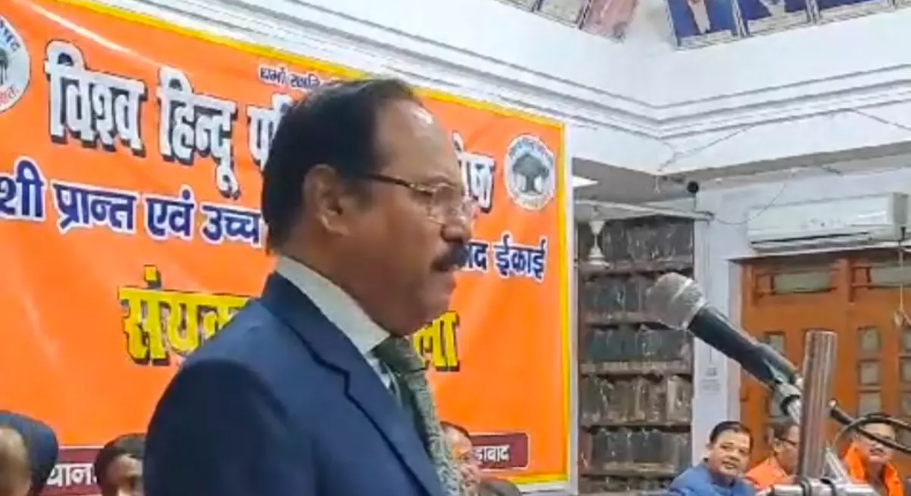Uttar Pradesh: High Court judge says Hindustan should function according to the will of the majority
The comment was made at an event organised by the ultranationalist Hindu far right. Judge Shekhar Kumar Yadav made similar anti-Muslim comments in the past and recently reiterated his support for a uniform civil code. Opposition parties filed a complaint with the Supreme Court.
Prayagraj (AsiaNews) – A judge with the Allahabad High Court, Shekhar Kumar Yadav, sparked harsh criticism from India’s opposition parties after videos posted online show him at an event organised by the Vishwa Hindu Parishad, a far-right Hindu group, in Prayagraj, Uttar Pradesh, in which he says: “[T]his is Hindustan, this country would function as per the wishes of the bahusankhyak (majority)”.
At the meeting, last Sunday, the judge also criticised some Islamic practices, arguing for the need to introduce a uniform civil code (UCC), an issue that has long divided public opinion and Indian political parties.
Opposition parties reacted by calling on Indian Supreme Court Chief Justice Sanjiv Khanna to take note of the matter.
Mahua Moitra of the Trinamool Congress and Asaduddin Owaisi of the All India Majlis-e-Ittehadul Muslimeen stressed the importance of the independence and impartiality of the judiciary. Owaisi noted that the Indian Constitution is based on the separation of powers.
By contrast, at the meeting, Judge Jadav said: “I have no hesitation in saying that this is Hindustan, [that] this country would function as per the wishes of the bahusankhyak living in Hindustan. This is the Law. You can't say that you are saying this being a High Court Judge. The law, in fact, works according to the majority”.
He added that a uniform civil code is not just something advocated by far-right organisations like the Vishwa Hindu Parishad or the Rashtriya Swayamsevak Sangh (a paramilitary group associated with Prime Minister Narendra Modi’s Hindu ultranationalist Bharatiya Janata Party).
“I am taking an oath that this country will definitely bring a single law,” he said.
For a long time, the BJP has pushed for a uniform civil code to standardise the laws governing marriage, divorce, inheritance, adoption, which are currently regulated separately according to the religion of the parties.
This is not the first time that Judge Yadava's statements have been criticised. In 2021, he asked the central government to introduce a law to honour Ram, Krishna, the Ramayana, the Mahabharata, the Bhagavad Gita, and other ancient texts that underpin Hinduism, which he also wanted to see taught in schools.
That same year, he said that cows should be protected by the Constitution (because the nation's prosperity also depends on the well-being of cows, which he said belong to Indian culture) and their slaughter should be punished by law.
This issue directly affects the Muslim community, which does not consider cows sacred and, unlike Hindus, trades and eats cows.
In 2021, the judge denied bail to a man accused of converting a woman to Islam. He defended his ruling saying that when a member of the majority (Hindu) community converts to another religion, this shows that the country is weak allowing religious fanaticism to take advantage of it.
In another case involving a man accused of insulting Hindu deities on Facebook (who had been granted bail), Yadav wrote that the posts were an attack on the faith of the majority of the Indian population and if the courts treated these people with leniency, there is a risk that their morale would increase and their conduct undermine harmony in the country.
Citing the judge’s various anti-Muslim comments, opposition parties called for his removal from office.
Conversely, Kshetriya Sanyojak Brijendra Singh, a VHP member and one of the main organisers of the 8 December event, defended the judge, saying the statements were taken out of context.
For its part, the BJP dismissed the issue by arguing that “Everyone has the right to express his personal views.”
15/01/2019 17:19







.png)










